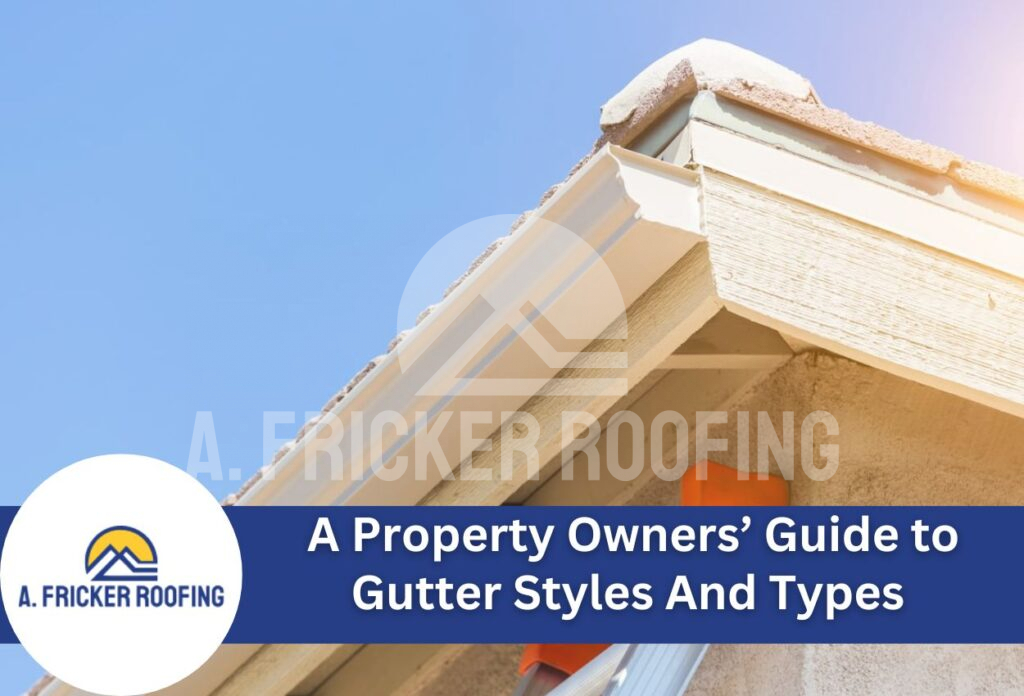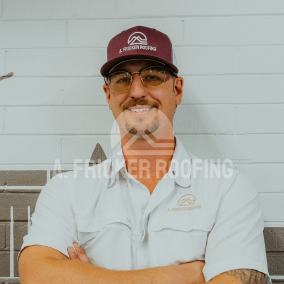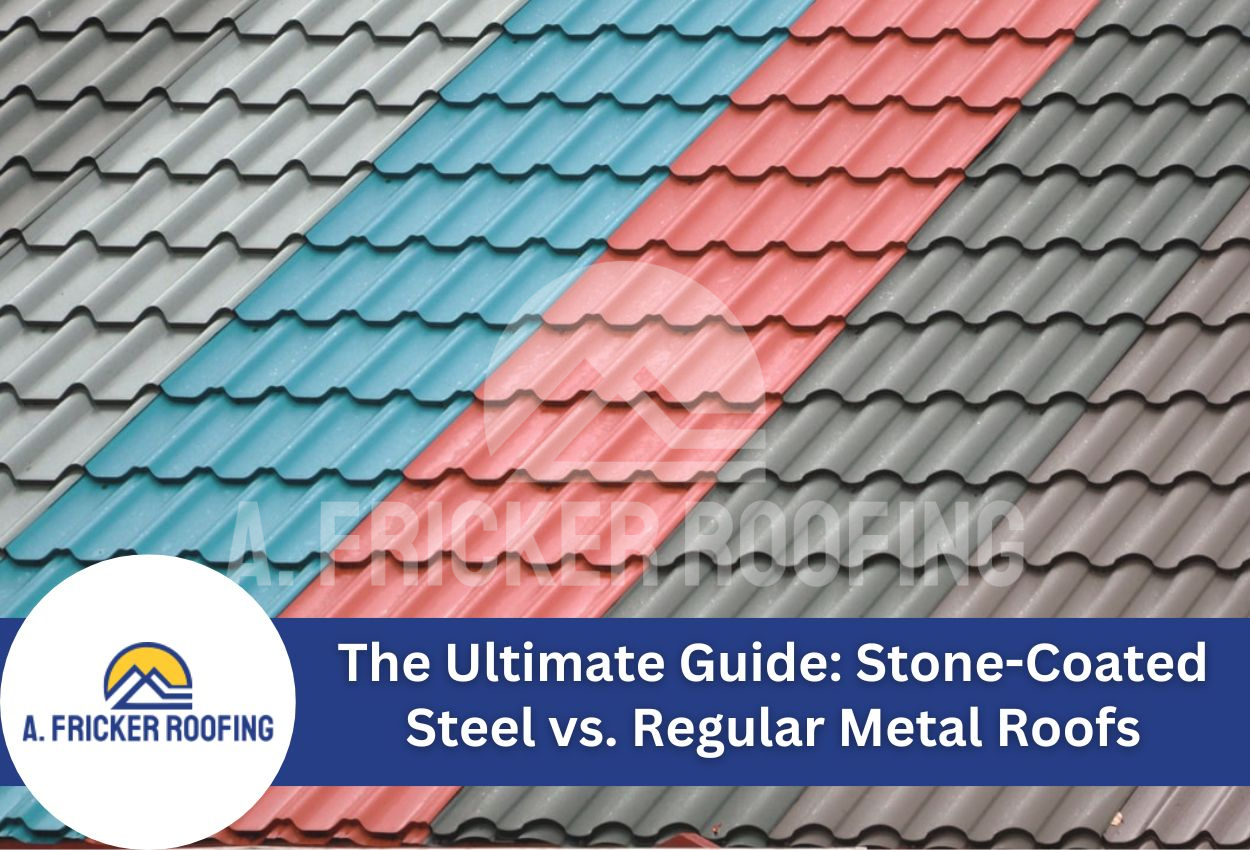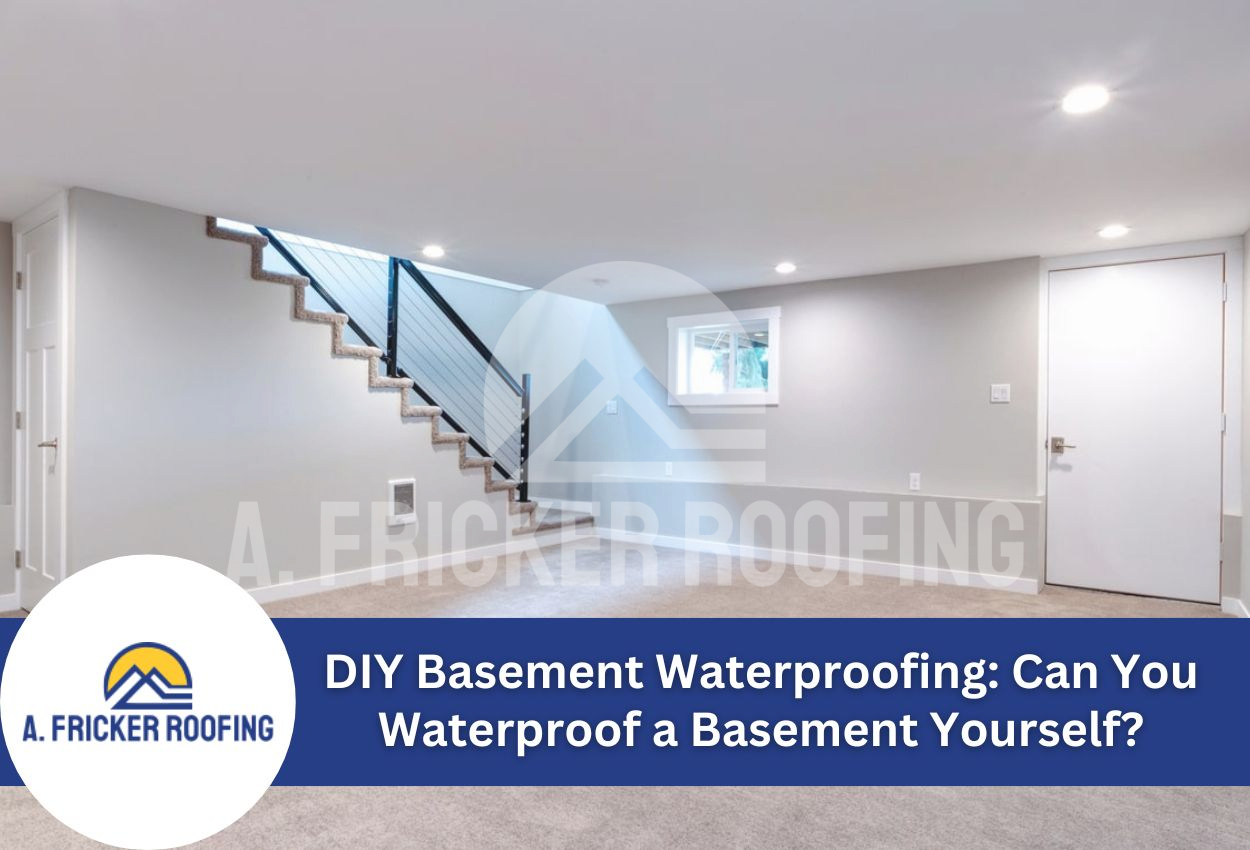Are you struggling in finding the right gutter style and type for your home? With so many available options in the market, choosing the right gutter styles is a daunting task. And, as a professional gutter installers at A. Fricker Roofing and Waterproofing in Tulsa, OK, we understand this hussle. Therefore, to make your life easy and help you choose the right gutter style, we have created this blog post.
This comprehensive blog post explores the most popular gutter styles that homeowners always consider. Introducing the most popular gutter styles, we will cover the top rain gutter materials to rely on. Stick to this blog post till the end to make an informed decision for your home and the years to come.
Let’s start off by comparing the two main types of gutters: seamless and traditional.
Seamless vs. Traditional Gutters
One of these two types of gutters is most likely adorning your home:
Seamless Gutters:
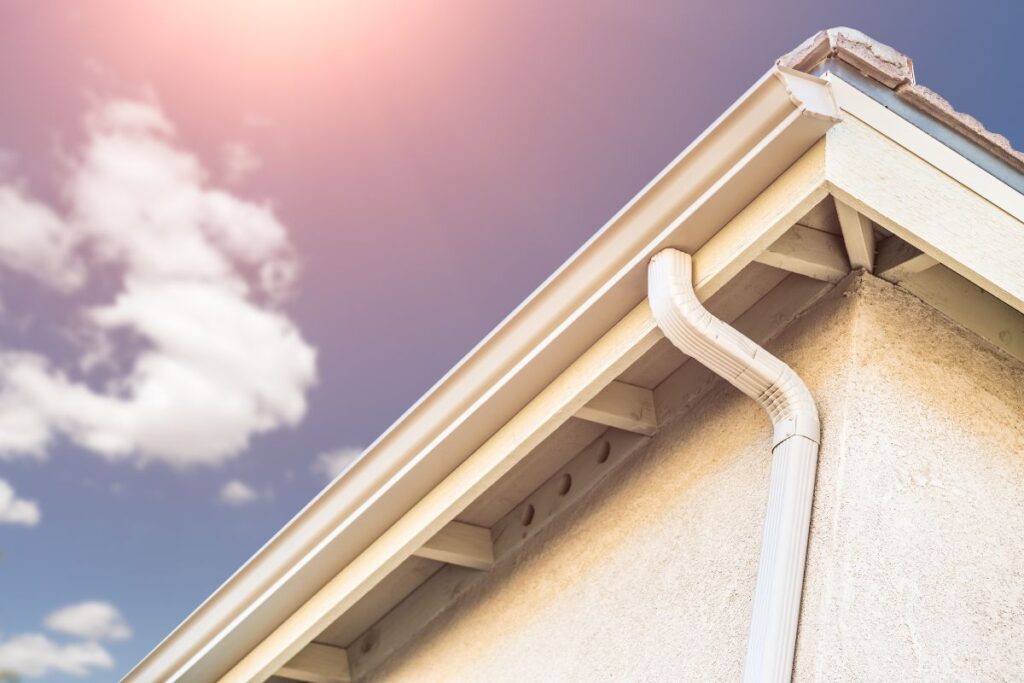
Seamless gutters, crafted from a single continuous piece of material, offer a modern, leak-resistant solution. Custom-made on-site, they fit perfectly to the shape of your house, reducing maintenance needs and providing a sleek appearance that complements your home’s design.
Traditional Gutters:
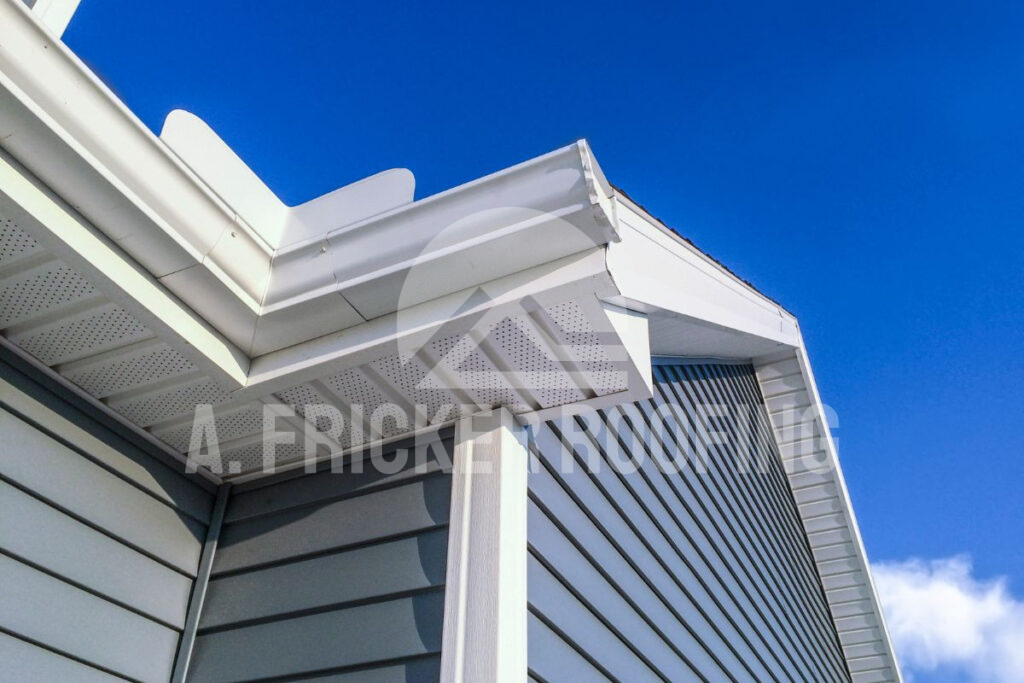
Traditional gutters, assembled from sectional pieces, are a familiar choice but are more prone to leaks at seams. While initially cost-effective, they might require more maintenance due to their susceptibility to wear and tear over time.
All the gutters that we will talk about today are generally available in either seamless or sectional.
Top Gutter Styles That Can Improve the Look of Your Home
If you are in sync with the latest trends in home improvement, then you know that gone are the days when only traditional gutters existed. There are now several options, each with their own benefits and drawbacks. Below is a list of some of the best gutter styles.
1. K-Style Gutters
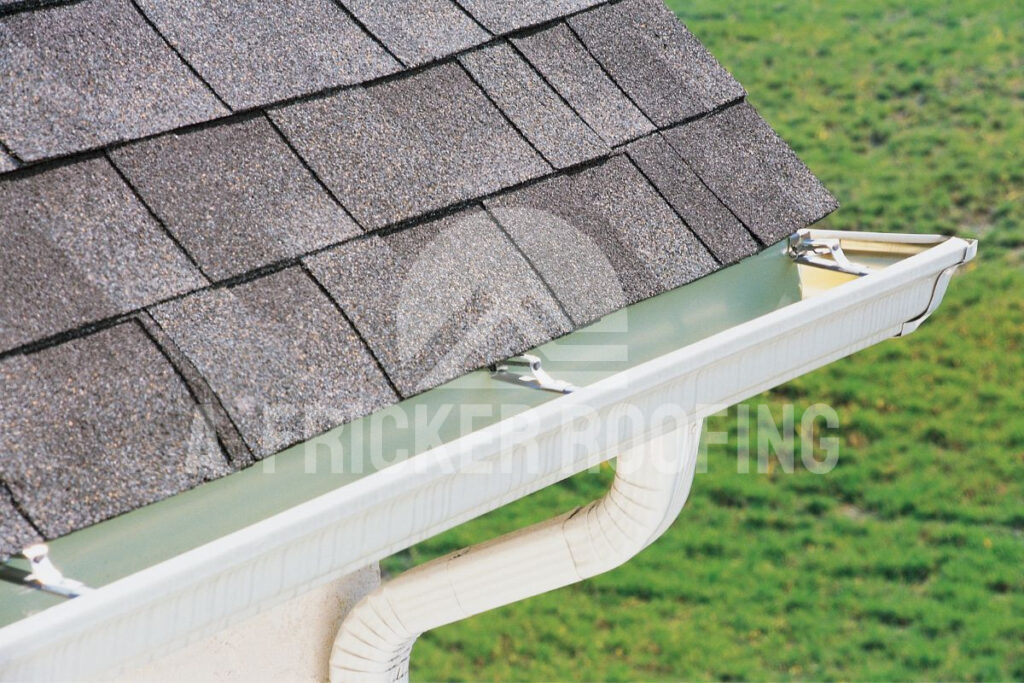
To start the list of gutter styles, we have the most common gutter in use, the K-style gutter.
K-style gutters, named for their resemblance to the letter “K” when viewed from the side, are among the most commonly used gutter styles on modern homes. These gutters boast a flat bottom and back, along with angled sides that provide a sleek, streamlined appearance. Their design efficiently accommodates more water compared to traditional rounded gutters.
Functionality:
These gutters efficiently handle moderate to heavy rainfall due to their shape, which allows for increased water collection. The flat bottom and back make them easier to attach to the fascia of the house, ensuring a secure and snug fit.
Appearance:
Visually, K-style gutters offer a contemporary look. Their flat inner surface allows for easy cleaning, reducing the chances of clogs and overflow. Since there is less space for debris to settle and deteriorate, these gutters can last for decades with ease.
Their versatility in accommodating various colors and materials makes them a popular choice for modern architectural designs as well.
Also Read: Top Gutter Colors And How To Choose The Right One
Suitability:
Their adaptable nature suits a wide range of architectural styles, from traditional to contemporary. K-style gutters seamlessly complement homes with angular or straight-line designs, adding a touch of sophistication to the overall aesthetics.
2. Half-Round Gutters
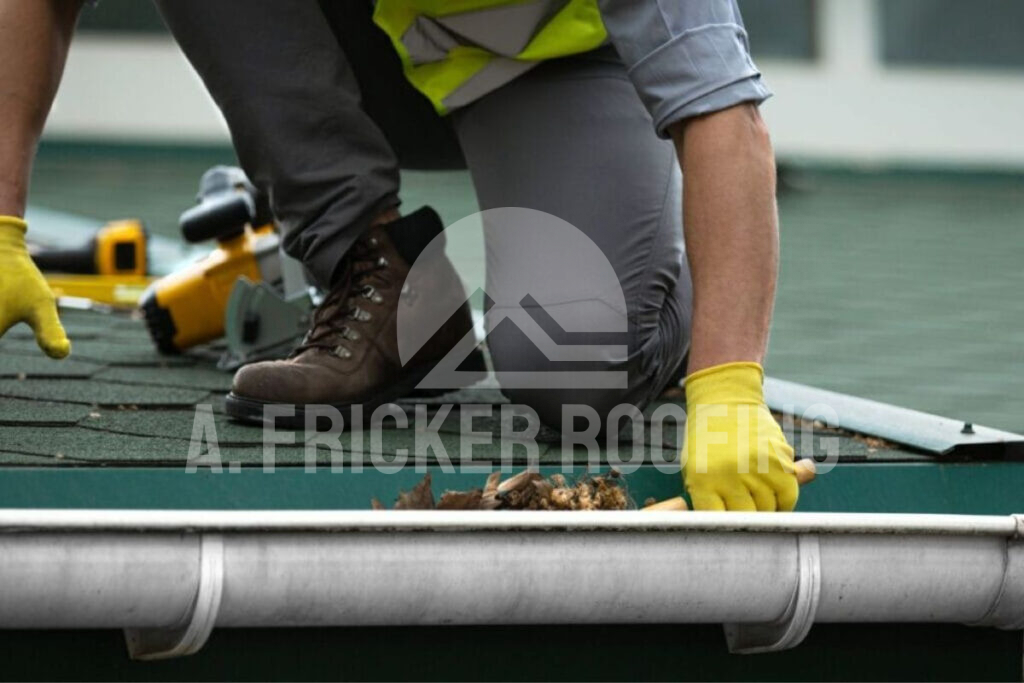
Half-round gutters, as the name suggests, have a semi-cylindrical shape, resembling a half tube. They evoke a more traditional or classic appearance compared to K-style gutters. Half-round and K-style gutters are two of the most popular styles of gutters in Tulsa.
Functionality:
These gutters effectively handle water flow due to their smooth, curved shape, reducing the likelihood of debris accumulation. Their round design even makes them easier to clean and allows for efficient water movement, making them suitable for areas that experience moderate rainfall.
However, since they are a bit more traditional, these can be difficult to install and are less durable than other gutter options available.
Appearance:
With their rounded profile, half-round gutters exude a charming, traditional appeal. They often complement historic or vintage architectural styles, adding a touch of elegance and grace to the exterior of a property.
Suitability
Half-round gutters beautifully complement homes with rounded or curved architectural elements. They are well suited to traditional or Victorian-style properties, as they can complement the structure of the home.
3. Box Gutters
Now, let us move on to a bit more recent phenomenon in the gutter industry. Box gutters, also known as square gutters, differ from K-Style and half-round gutters in their shape and size. Unlike the more traditional circular design, these gutters have a square or rectangular profile, and work well with both residential and commercial roofing systems.
Functionality:
Box gutters are designed to handle heavy water loads effectively. Their wide and deep structure enables them to collect substantial volumes of water, making them ideal for areas experiencing frequent or heavy rainfall.
Appearance:
Their discreet and minimalist appearance integrates seamlessly into the roofline, offering a clean and unobtrusive aesthetic. However, they may require regular maintenance to prevent debris buildup due to their shape.
Suitability:
Box gutters are commonly used in modern or contemporary architectural designs due to their clean lines and ability to blend with flat roofs or modern-style homes.
4. Fascia Gutters
Fascia gutters, mounted snugly against the fascia board, seamlessly integrate with the roof’s edge, ensuring a sleek and tidy transition. Their unobtrusive design not only enhances curb appeal but also simplifies maintenance, making them an appealing choice for homeowners seeking both aesthetic charm and practicality.
Functionality:
These gutters efficiently channel water away from the roof and exterior walls. Their direct attachment to the fascia ensures stability and ease of installation.
Appearance:
Fascia gutters offer a neat and subtle look, enhancing the overall aesthetic appeal of the property. Their integration with the fascia creates a seamless transition from roof to gutter.
Suitability:
Fascia gutters are versatile and suitable for various architectural styles, especially those aiming for a sleek and understated look. They work well with both modern and traditional designs, providing a neat and refined finish to the property’s exterior.
Now let’s move on to the gutter types.
Also Read: A Complete Guide To Finding Your Home’s Gutter Size
Different Types of Gutter Materials
Along with the style of gutters you pick, the choice of material plays a crucial role in the durability and longevity of your gutters in Tulsa.
1. Aluminum Gutters
We all know how popular aluminum metal roofs and siding are, the same is the case with aluminum gutters. These are crafted from lightweight yet durable aluminum metal, and offer a practical solution for many homeowners. With aluminum gutters, you will get a blend of both reliability and durability.
Pros:
- Aluminum gutters stand out for their rust-resistance, which is one of the major reasons why they are amongst the highest-selling gutters. This feature makes them ideal for areas with high moisture content.
- They are lightweight, contributing to faster installation and easier handling.
- Additionally, their ability to resist corrosion prolongs their lifespan, contributing to long term cost-effectiveness.
- As aluminum gutters are easy to install, you can take the DIY route. However, hiring a gutter installer in Tulsa is always recommended.
Cons:
- While durable, aluminum gutters can dent more easily compared to other materials, especially when exposed to heavy impacts.
- Moreover, their lightweight nature may not be as structurally robust in areas prone to severe weather conditions such as hailstorms.
Lifespan:
With proper maintenance, aluminum gutters can last approximately 20 years, providing reliable protection and requiring minimal upkeep.
2. Copper Gutters
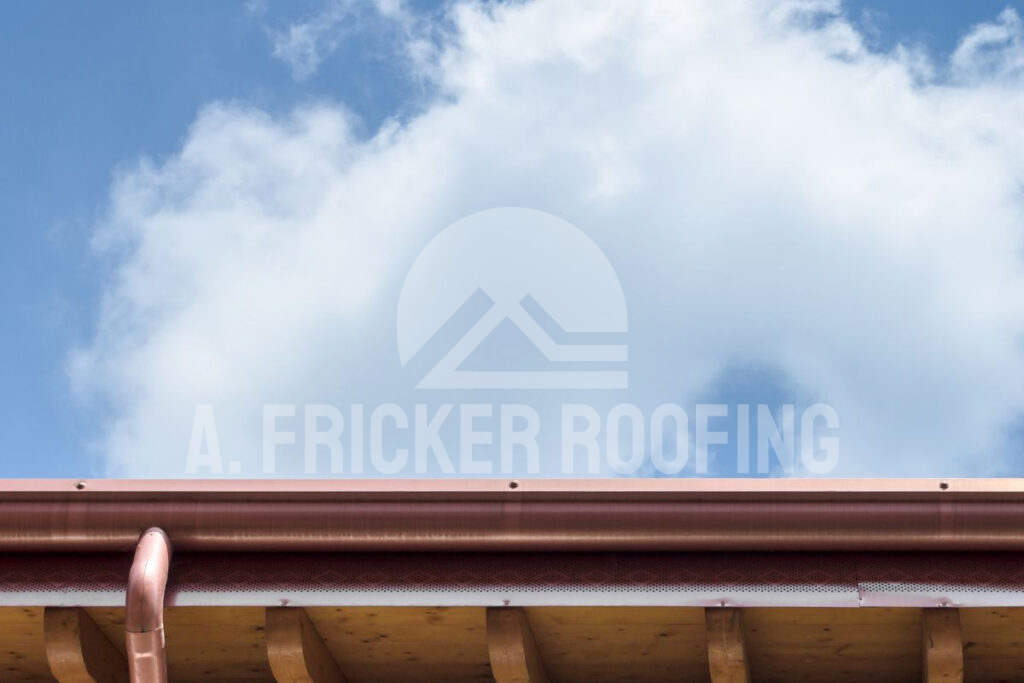
Copper gutters, known for their luxurious appearance and durability, add a touch of elegance to any property. These gutters develop a distinct patina over time, enhancing their visual appeal. Copper gutters have it all, style, durability, and a long lifespan, but there is a catch: you must have a sizable budget for the initial installation.
However, you also have an option of installing faux copper gutters, which offer a great look at a lesser price.
Pros:
- Copper gutters boast exceptional durability and weather-resistance, making them a preferred choice for regions with harsh climates.
- Their resistance to corrosion ensures longevity, and their unique aging process adds a timeless charm to a property’s exterior.
- These gutters last longer than most other types of gutters.
Cons:
- The initial cost of copper gutters tends to be higher compared to other materials, making them less budget friendly for some homeowners.
- Additionally, while the patina adds character, it might not suit every architectural style or homeowner’s aesthetic preferences.
Lifespan:
When properly maintained, copper gutters can last for an impressive 50 to 60 years, making them a long term investment in both functionality and visual appeal.
3. Vinyl Gutters
Vinyl gutters, made from polyvinyl chloride (PVC), offer an economical and low maintenance option for those seeking a practical solution without compromising quality. PVC has grown in popularity over the years, and can be found in a variety of industries from healthcare to construction. Due to their durability and affordability, vinyl gutters are becoming more common on residential properties.
Pros:
- Vinyl gutters are cost-effective because the manufacturing process and installation are both quick and easy.
- They are extremely lightweight, as light as aluminum, making them a popular choice for DIY enthusiasts.
- They are resistant to rust and corrosion, and their affordability makes them an attractive option for budget conscious homeowners.
Cons:
- Despite their affordability, vinyl gutters might not withstand extreme temperature fluctuations as well as other materials.
- They can become brittle over time, especially in colder climates, and may require replacement sooner than some other gutter types.
- Vinyl gutters do not last as long as other gutter materials.
Lifespan:
Under optimal conditions and regular maintenance, vinyl gutters can last approximately 10 to 20 years, offering an accessible and functional solution for homeowners on a budget.
4. Steel Gutters
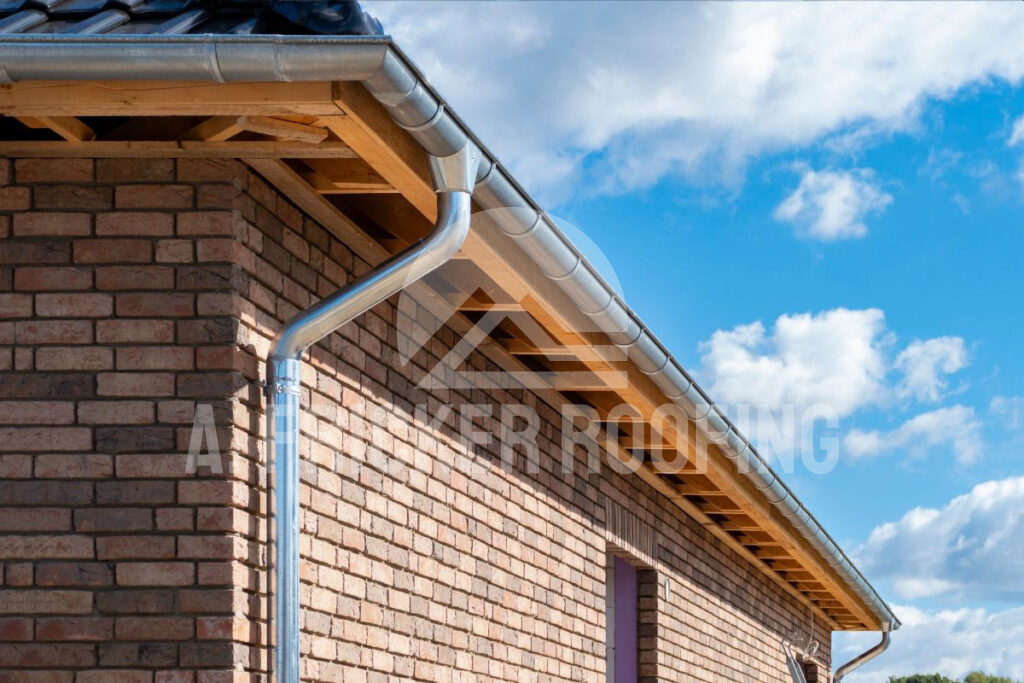
Steel gutters, constructed from galvanized steel or stainless steel, present a robust and sturdy option suitable for various environments. These gutters are strong, but with this durability comes a higher price as steel gutters are more expensive than aluminum and vinyl.
Pros:
- Steel gutters offer exceptional strength and durability, capable of withstanding harsh weather conditions, including heavy snow loads.
- They are resistant to impacts, making them less prone to dents compared to aluminum gutters.
- Additionally, they provide a sleek and modern aesthetic which is appealing to many homeowners.
Cons:
- Despite their durability, steel gutters are susceptible to rust and corrosion over time, particularly if the protective coating is compromised.
- The initial cost of steel gutters can also be higher than other materials, impacting their affordability.
Lifespan:
With proper maintenance and occasional repainting to prevent corrosion, steel gutters can last approximately 20 to 30 years, offering enduring reliability for homeowners seeking a strong and resilient gutter option.
Visualizing these gutter materials allows homeowners to better understand their unique features, strengths, and considerations, aiding in making informed choices for their properties.
To Sum Up
Today we talked about different types of gutters in terms of both styles and materials. When it comes to styles, K-style and box gutters are the most popular. And for gutter materials, metals are very common, especially aluminum and stainless steel gutters.
Best Gutter Installation Services in Tulsa, Oklahoma
Now that you know about all the options available to you, it’s time to move ahead with your gutter replacement or installation project. A. Fricker Roofing and Waterproofing is the leading roofing and home exterior company in Tulsa. We offer gutter installation in Tulsa, and surrounding areas of Oklahoma. We install all the gutter styles and materials mentioned in this blog post.
If you need to install new gutters or want to repair your existing gutter system, contact our team at (918) 402-7167.
